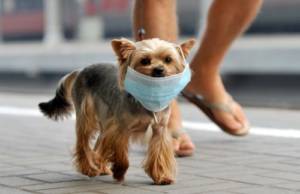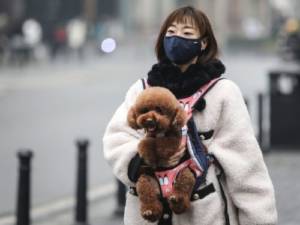Coronavirus is the buzzword these days and understandably for all the wrong reasons as the death toll has surpassed 1100 with a scarcely believable 45000 cases registered all over the world. A significant chunk of this population is in China while the novel virus has started spreading to other countries like Japan and the USA.
Coronavirus currently infecting people is basically 2019-nCoV. Although many people are referring to the 2019-nCoV as the coronavirus, in reality, coronavirus refers to a family of 40 viruses that resemble the shape of a crown. Previously other types of coronavirus like MERS-CoV and SARS-CoV have affected animals and human beings.
All types of Coronaviruses aren’t deadly. Many of them have mild effects like sneezing and coughing. Perhaps, researchers have found out that coronavirus has affected most of the humans at least once in their life cycle. The new 2019-nCoV is though causing a fatal COVID-19 disease that can cause death through severe acute respiratory failure and pneumonia, among other symptoms.
The 2019-nCoV has passed on from Wuhan, China, where some people consumed affected snakes. Since the virus has spread to humans from animals, there’s panic among the public that it can pass on to other animals.
Being a dog owner, you may be carrying the same fear, and so you are here. Before discussing whether it can affect your pet, it’s essential for you to stop panicking as there is good news for you.
While investigations are still underway on whether 2019-nCoV can affect dogs, early signs are that the virus has explicitly mutated to affect humans. It can’t affect other animals like dogs. But dogs have been affected by another type of coronavirus named Canine Coronavirus since 1971.
The Canine coronavirus has the same crown-like shape as found in 2019-nCoV. The canine coronavirus is a contagious disease that can cause gastrointestinal problems. The canine coronavirus is found exclusively in dogs. While it is usually a mild disease, it can be fatal in some cases.
Most dogs get affected by the canine coronavirus by eating the poop of infected animals. CCV stays frozen in the poop for a long time. It can also spread through ingestion of affected saliva and licking the affected dog’s rectum. CCV alone shows extremely mild symptoms in dogs, but it can turn fatal if intestinal parasites already infect the dog.
CCV passes on from eating leftovers of other dogs. The coronavirus has a severe effect on dogs with weak immunity. The coronavirus may remain for up to 6 months in the dog’s body even after he has recovered from the disease.
Dogs have the tendency to lick and sniff everything around them. They can’t resist smelling the worst smelling things, including the poop of other dogs. Dogs also have the habit of licking their own nose after sniffing on leftovers and poop. This is another way of getting affected by CCV. The infection commonly develops from around 1 to 3 days after the ingestion of the virus.

Coronavirus usually has mild symptoms including diarrhoea, vomiting fever and loss of appetite. The symptoms may not be seen at all or may result in just about vomiting or explosive diarrhoea. Even these symptoms resolve many times without treatment.
Your dog might excrete loose poop of yellow-green colour if he’s affected by a coronavirus. Adult dogs are rarely affected severely by coronavirus, but it can cause rapid dehydration and excessive diarrhoea in puppies.
Your dog’s faeces may also contain some mucus or blood in some cases. The symptoms compound substantially if your dog is already affected by Parvovirus. Lethargy and poor appetite are common symptoms of coronavirus. None of these symptoms is exclusive to coronavirus in dogs, and you must see the vet in any case. Perhaps other viruses like Parvovirus are harmful to a dog as discussed later.
Canine coronavirus causes intestinal problems, majorly diarrhoea and dehydration. It infects the lining of the small intestine of your dog. The specific part of the small intestine of your dog affected by a coronavirus is microvilli. The dog’s small intestine has small hill shaped projections called villi. The villi further have thin hairy particles over them which are called microvilli.
The microvilli help your dog to process and break down food particles. The dog’s body has crypt cells that produce microvilli. The crypt cells usually take about 3-4 days to replace microvilli in the small intestine. If your dog isn’t already suffering from the fatal Parvovirus, the symptoms of coronavirus will last just 3-4 days.
In extreme cases of low immunity or stomach infections, the coronavirus disease can cause life taking diarrhoea. The coronavirus is deadly mostly for newborn puppies or weak and old dogs. It causes rapid coughing and respiratory problems in such dogs. It’s perhaps important to feed your dog well and help boost his immunity to protect him from such diseases.
As the coronavirus is spreading all over the world like an epidemic, you might be thinking if your dog can be affected by the virus and pass it on to you. While most scientists in China and the world are trying to study the coronavirus’ effects on humans and which animals can spread it to humans, it’s safe to say it can’t spread from dogs to humans.
https://youtu.be/aJBaUkWt4aE
As of the cases that have been registered so far, there is no evidence that dogs carry 2019-nCoV or they can spread coronavirus to humans. While dogs can be affected by a canine coronavirus and they can spread it to other dogs, canine coronavirus doesn’t affect humans.
SARS-CoV was transferred to humans from civet cats and MERS-CoV from camels, but there have been no cases of any kind of coronavirus passing to humans from dogs. Dogs though, can spread other types of viruses to humans, including norovirus, which is also caused stomach flu. Rabies is another common kind of virus transmitted from dogs to humans.
Before thinking about your dog getting affected by your virus, you must know that humans can easily spread coronavirus through cough, sneeze and transfer of any bodily liquid. Humans may also get affected by coronavirus when they touch doorknobs or other places previously touched by an affected person. You must go to the doctor immediately and take necessary precautions if you can experience the symptoms.
While there have been cases where animals like cats, camels and snakes have transmitted coronavirus to humans, there are no cases reported of humans infecting their pets from coronavirus. There’s probably no reason why you should believe you may infect your pet.
But to be doubly sure, try to take necessary precautions to eliminate the risk of infecting your dog. Wash your hands properly, wear a mask and cover your mouth with a hanky while coughing or sneezing.
Coronavirus affects most dogs early in their life as a study by the American Veterinary Medical Association found out that more than 50% of dogs in the US carried antibodies to coronavirus. Usually, dogs under 6 months of age get affected by CCV, and the symptoms subside in a short time. Their bodies generate antibodies naturally in such cases.
You should vaccinate your dog from respiratory infections as well as give preventive vaccinations available for some types of coronavirus. It’s important to note that specific vaccination is not available for all kinds if coronaviruses.
Prevention:
Coronavirus is highly contagious, and dogs in frequent contact with other dogs are more likely to get affected by it. Merck Veterinary Manual of dogs lists the type of dogs prone to carry infection of coronavirus:
- Puppies of age lesser than 6 months
- Dogs who frequently play with other dogs in the park, visit grooming centres and other places of interaction with dogs
- Dogs that have lived in rescue homes, dog shelters and other such places where they share their meals and get in contact with other dogs
- Dogs that stay in dog care units or kennels
Try to prevent your dog’s interaction with susceptible dogs carrying coronavirus. Since the virus is mostly spread through licking leftovers or poops of other dogs, try to stop your dog from sniffing or licking on such things. Picking up your dog’s poop instantly after he does the job, is part of good behaviour.

In case your dog has caught coronavirus, you must quarantine your affected dog and keep him away from the contact of other dogs. As discussed earlier, dogs carry coronavirus up to 6 months after recovery, so clean up his stool to prevent other dogs from catching the virus.
Treatment:
As is the case of the other viruses, there is no prescribed medicine for coronavirus disease. The medications are only meant to relieve their symptoms. Since the symptoms are diarrhoea and vomiting, it may require a blood test to identify the cause. While adult dogs may recover themselves, puppies need special care.
The treatment aims to counter the fluid loss due to dehydration, and the vet might give your dog antibiotics to reduce the risk of secondary infections. Antibiotics help reduce bacteria in the intestine, and fluid therapy helps the dog recover from dehydration. The vet might also give your medicines to control diarrhoea.
Coronavirus infections are prevalent in dogs, especially pups. As discussed earlier, more than half of the dogs have suffered from coronavirus at least once in their life. Canine coronavirus is common in puppies of less than 6 months of age.
It’s mostly a mild disease, and dogs recover quickly in most cases. It’s necessary to take your dog to the vet if he’s suffering from excessive diarrhoea or vomiting. He might be affected by viruses deadlier than coronavirus, so don’t avoid blood tests in such cases.
Source:
https://www.petassure.com/education/dog-disease/canine-coronavirus-insurance/
